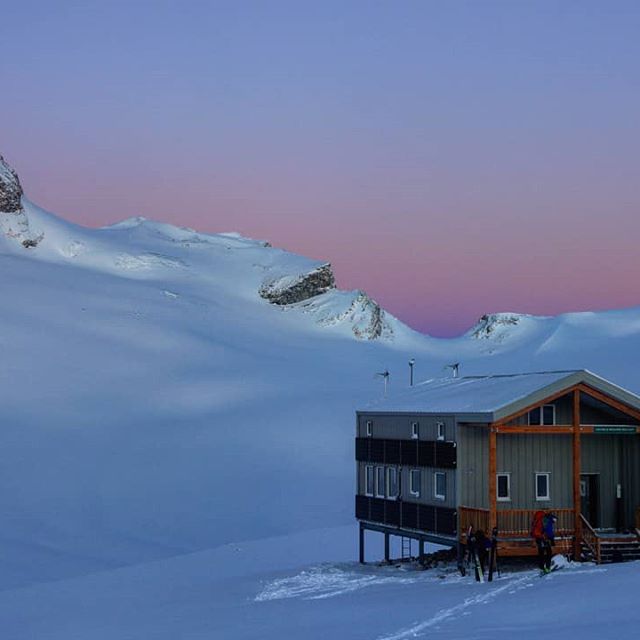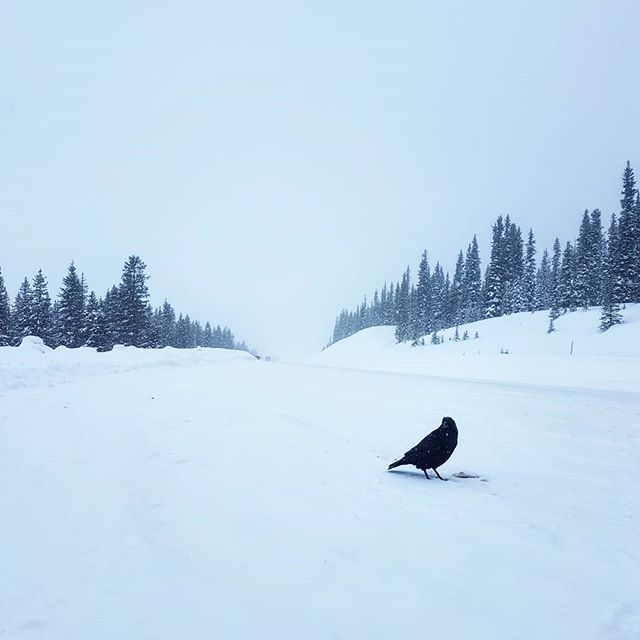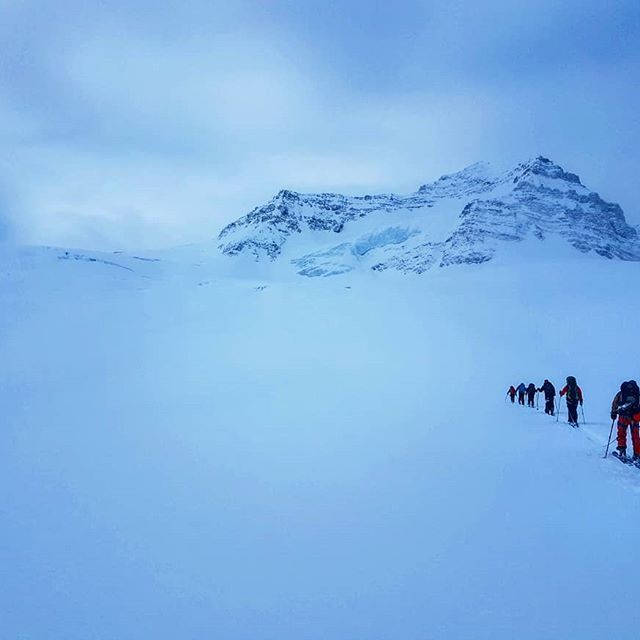
- This event has passed.
POSTPONED: AST1 and Intro Backcountry Skiing or Riding
December 5, 2024 - December 8, 2024
$372.75
Delivered by the University of Calgary Outdoor Centre
Cost: $372.75 ($355 + 5%gst)
Payment to: greatplainsfinance@gmail.com
Disclaimer: Monday October 8, 2024 will be the deadline for enrollment. No Exceptions! Full payment at time of booking. This allows us to utilize the U of C cancellation/refund policy.
Dates
- Dec 5, 2024, 6pm – 9pm (Alberta Time)- Classroom Session via Zoom
- Dec 7, 2024, 9am – 4pm -Field Day (Location TBD)
- Dec 8, 2024, 9am – 4pm Field Day (Location TBD)
Description
This course follows the Avalanche Canada curriculum for Avalanche Skills Training Level 1, combined with our Introduction to Backcountry Skiing and Riding curriculum. This course is essential for anyone traveling in or around avalanche terrain in winter and is intended to be a first step toward safely managing backcountry travel.
What you will learn:
- avalanche formation and release
- avalanche terrain identification
- trip-planning basics
- optimal use of tools and resources like avalanche forecasts to mitigate avalanche risk
- appropriate travel techniques in avalanche terrain
- intro to companion rescue
You will also learn foundational-level backcountry travel skills, including climbing efficiently with skins and tracksetting. The second day will be an opportunity for practice, discussion, and student leads in a backcountry setting.
You will be provided with a link to a home study seminar to complete on your own. You will then attend a classroom session on Thursday evening and a full-day practical field session on the weekend with an instructor certified by the Canadian Avalanche Association. Attendance at the classroom session and the field day is mandatory, as is completion of the knowledge quiz.
Part 1 – Recorded content and self-study
You will receive a link to recorded content which will introduce you to the basic concepts of avalanche formation and release. You will also receive a link to complete a short knowledge quiz and review some home study materials. Expect to take about five hours to complete the pre-course self study.
Part 2 – Classroom
The classroom session includes lecture content covering human factors in avalanche risk management, trip planning, reading an avalanche forecast, weather factors, and more. There will be time for questions and answers, and review of concepts presented in the self-study content. In addition, you will go through a trip-planning exercise with the current conditions in mind to prepare for your field day session on the weekend.
Classroom sessions take place on Thursday evenings via an online platform from 6:00 pm to 9:00 pm.
Part 3 – Field days
The two field days will include practice in companion rescue techniques including transceiver, probe, and shovel use; avalanche terrain recognition; and safe route-finding. You will practice group management concepts and make on-site snowpack and weather observations to use in making good terrain decisions. Field days will be delivered at a suitable site to be confirmed each week in Kananaskis Country or Banff National Park.
The field day includes a certified instructor and avalanche safety equipment. Backcountry skis or splitboards are acceptable modes of travel for this component. If you do not have your own, these can be rented at the Outdoor Centre. Downhill skis (alpine bindings) are not sufficient for this course.
Certificate
An AST 1 certificate will be emailed upon completion of the classroom and field day sessions and knowledge quiz.
Prerequisites
There are no experience prerequisites for this course and it is suitable for participants who have never travelled in the backcountry before.
This program is designed for adults.
We do not cover large distances on the field days, but you will need to able to travel over soft/deep snow in variable conditions. Both up- and downhill travel are required.
Checklist
Acceptable equipment options for the field days are:
- alpine touring or telemark skis with climbing skins, touring boots, and poles
- splitboard with climbing skins, warm snowboard boots, and collapsible poles
- snowshoes with warm winter (Sorel-style, snowshoe, or mountaineering) boots, and poles.
You can rent ski, splitboard, or snowshoe equipment from the Outdoor Centre using the Online Gear Rental page. Reserve early to ensure availability.
Wear:
- wool or synthetic insulating layers (avoid cotton fabrics which absorb water and stay cold)
- snow-shedding shell jacket and waterproof shell pants
- warm, waterproof gloves or mittens
- sunglasses and/or ski goggles
- warm toque and scarf or neck tube
Bring:
- day pack (35-45 L), waterproofed with pack cover/liner or garbage bag
- extra warm clothing (for standing around in the snow), including a down or synthetic insulating puffy jacket
- extra gloves/mitts (minimum 2 pairs – you will be digging in the snow)
- sunscreen, lip balm with SPF
- lunch & snacks
- 1-2L of water in water bottle or thermos
- National Parks Pass or Kananaskis Conservation Pass, depending on field day location (see pre-trip email for details)
Recommended items:
- personal first aid kit with blister materials, hand sanitizer, mask (optional)
- hot packs for hands and toes (optional)
- notebook and pencil (optional)
- compass (optional)
Please note that we will run the course in almost all weather conditions and that you should check the forecast and dress appropriately.
We will spend about half our time travelling and half our time stationary, so extra clothing for cold weather conditions is essential.
Itinerary
Online classroom session:
A logistics package will be sent to you by email in the week leading up to the classroom component. Please ensure that you have access to high-speed internet and a computer, phone, or tablet with a microphone (webcam optional, but preferred). Lecture sessions will begin promptly at 6:00 pm on Thursday evenings.
Field days:
The field days will be run at sites to be announced in the week prior to the course date based upon number of participants, snowpack, and weather conditions, most commonly in Kananaskis. Check your email in the week leading up to the course for a logistics package and meeting location.
Field days will leave the trailhead promptly at 9 am, or a time coordinated with your guide, and will run until approximately 4 pm. Travel to the Icefields Parkway may be required, depending on snowpack and weather conditions.
Included in cost
Course fee includes a certified instructor, certificate, Avalanche Skills Training Handbook (Floyer and Robine), Avaluator booklet, and other course materials. Also included is the use of a transceiver, shovel, and probe on the field days. Please feel free to bring your own if you already have this equipment; use will be at the discretion of the instructor.
Transportation details
Organize your own rides/carpool. James will collect the guide for the field days.
You will need a Kananaskis Conservation Pass or National Parks Pass depending on the field day location.
Medical form, waiver
You will need to log in (or create) to your account at active-living.ucalgary.ca to sign the course waiver if not completed while registering, and complete/update your medical form. These must be done online, well before the program start, to allow participation. Check “My Waivers and Forms” to access the outstanding waiver, or confirm that you have no waivers to sign.
Please email james.lawrence.lewis@gmail.com when you submit payment. James will be the UofC point of contact, so reach out to him with any questions. Please let James know which email you used to create your Active Living account and your full name so the UofC can sign you up for the course on their end.
Create lasting memories, meet new friends!
Register to attend a trip with the Alpine Club of Canada Great Plains Section
Trip Info & Guidelines
Guidelines For Trip Participants
All trips listed in the Great Plains Section’s trip schedule are coordinated by amateur volunteer hikers, skiers and climbers. When on a trip, participants must act in a manner that is safe and responsible and participants are expected to bring the equipment requested by the trip organizer. Participants should find out the requirements and demands of the trip well in advance by asking the organizer and researching the trip in guidebooks and other literature. You must be a member of the Great Plains Section of the Alpine Club of Canada to join a trip.
Further guidelines for participants
- Be prepared to complete a Release of Liability (Waiver). Waiver Form
- You must be a member of the Great Plains Section of the Alpine Club of Canada to join a trip.
- Sign up for trips that will challenge you, but are not beyond your abilities. If unsure, ask the trip organizer and tell them your experience and fitness level. People inexperienced in the mountains should start with easier trips.
- Learn about the trip before you attend (which route, number of kilometers, amount of vertical gain/loss, type of terrain, length of day, etc.).
- Give as much notice as possible to the trip organizer if you are unable to go on the trip. There are often waiting lists of other members who would like to go. If you do not provide enough notice of cancellation for your spot to be filled, your trip deposit will not be refunded.
- Ensure that you have the right equipment and that it is in good repair.
- For winter trips, ensure that you are using a digital avalanche transceiver and that it is in good working order. Single antenna/analog transceivers are not acceptable.
- Bring your helmet on all moderate and difficult scrambles and all climbing trips. Leaders may ask you to bring your helmet on certain ski trips as well.
- Be prepared to contribute to the trip and carry part of the group gear (ropes, etc.).
Personal Insurance
As a broker for TuGo, the ACC offers Emergency Medical Insurance, Trip Cancellation Insurance, Baggage Insurance and more. These policies are available to all Canadians travelling outside their home province within Canada as well as internationally.
If you require medical attention while you’re traveling outside of your home province, or outside of Canada, your provincial health care plan may not cover you. The ACC’s trip insurance covers air ambulance, emergency medical and many other medical expenses. Climbing, skiing and other backcountry accidents are not exempted (as they are with many insurers).
For more information and online quotes, click here.
Helpful Links
Ready to create lasting experiences?
Join the Alpine Club of Canada Great Plains Section
A.C.C. Great Plains Section
What are you waiting for? Join us today!
PHOTOGALLERY





